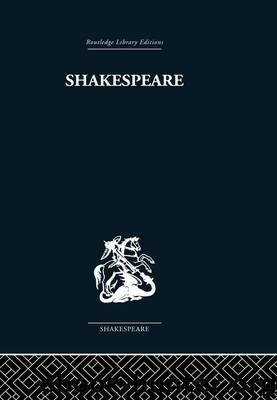Shakespeare by Foakes R. A.;

Author:Foakes, R. A.;
Language: eng
Format: epub
ISBN: 1474554
Publisher: Routledge
4
Shakespeare's last plays
(i) INTRODUCTION
In the dark comedies Shakespeare experimented with discontinuities and contradictions in character and action, withdrawing from the basic commitment to romantic love and to common ethical attitudes shown in the earlier comedies. In his late tragedies he withdrew from the moral commitment to good in its clash with evil which forms the basis of the central tragedies, learned how to distance his heroes, and to present them in terms of psychological necessity rather than moral discrimination. In his last plays Shakespeare seems to extend into a new kind of comedy the techniques developed in these two groups of plays. I call them comedies, for the term ‘tragicomedy’ is liable to mislead people into thinking of these plays as conceived in terms of a ‘blending of tragedy and comedy in the right amounts’,1 when in fact their drive to establish what Guarini called ‘the comic order’ is clear from the start.2 However, the dispassionate, primarily psychological treatment of character noticed in the late tragedies feeds into the last plays, in which characters tend to be given, not explained or motivated. So, for instance, the jealousy of Leontes is presented as a given fact about his nature, something he cannot help rather than a morally blameworthy condition of mind. But whereas Shakespeare made Coriolanus and Antony psychologically consistent, he exploits contradictions and discontinuities in the last plays, as is seen in the sudden change in Leontes himself, or in the presentation of figures like Cloten or Camillo. He combines techniques learned in earlier plays to create a dramatic world in which human intentions, the will, the act of choice, play a very subdued role, and actions by characters are referable to a psychological condition or compulsion, or to chance, or the influence of an uncertain heaven.
To put this another way, and focus it more sharply in terms of the action of these plays, it may help to consider as a particular point of reference the treatment of death. In the central tragedies deaths may be cataclysmic, involving the fate of nations, the return of chaos in the universe, and a prolonged intense suffering; the effort of the play is to magnify the effects and consequences of death, and makes us feel in the death of the older Hamlet, or of Duncan, or of Cordelia, an event that shatters peace and breaks hearts; Macbeth not only kills Duncan, he murders sleep. The death of Coriolanus is more muted, but still treated with ceremony as a matter of consequence. The earlier comedies usually start off from some threat of death, which provides an undertone to the plays, but is readily averted. Only in the last plays does Shakespeare effectively diminish the impact of death. The deaths of Cloten and the Queen in Cymbeline, like those of Mamillius and Antigonus in The Winter's Tale, occur casually, and pass with little notice. Cloten is slain by Guiderius, and Antigonus eaten by a bear, but no one is much troubled by these things, for
Download
This site does not store any files on its server. We only index and link to content provided by other sites. Please contact the content providers to delete copyright contents if any and email us, we'll remove relevant links or contents immediately.
| African | Asian |
| Australian & Oceanian | Canadian |
| Caribbean & Latin American | European |
| Jewish | Middle Eastern |
| Russian | United States |
4 3 2 1: A Novel by Paul Auster(11788)
The handmaid's tale by Margaret Atwood(7446)
Giovanni's Room by James Baldwin(6806)
Asking the Right Questions: A Guide to Critical Thinking by M. Neil Browne & Stuart M. Keeley(5355)
Big Magic: Creative Living Beyond Fear by Elizabeth Gilbert(5349)
Ego Is the Enemy by Ryan Holiday(4953)
On Writing A Memoir of the Craft by Stephen King(4659)
The Body: A Guide for Occupants by Bill Bryson(4579)
Ken Follett - World without end by Ken Follett(4441)
Bluets by Maggie Nelson(4258)
Adulting by Kelly Williams Brown(4231)
Eat That Frog! by Brian Tracy(4147)
Guilty Pleasures by Laurell K Hamilton(4115)
White Noise - A Novel by Don DeLillo(3828)
The Poetry of Pablo Neruda by Pablo Neruda(3813)
Fingerprints of the Gods by Graham Hancock(3731)
Alive: The Story of the Andes Survivors by Piers Paul Read(3726)
The Book of Joy by Dalai Lama(3693)
The Bookshop by Penelope Fitzgerald(3615)
